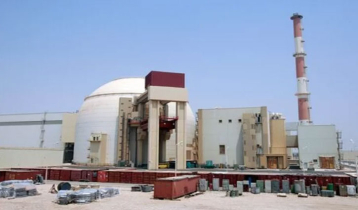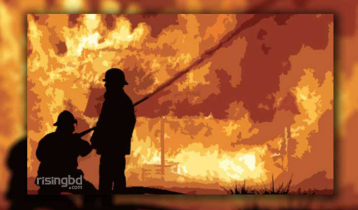Is a global recession coming?
Desk Report || risingbd.com

After beginning as a murmur early in the year, warnings of an incoming global recession are growing louder by the day.
During the past week, high-profile figures from the head of the World Trade Organization (WTO) to American Nobel Prize-winning economist Paul Krugman have sounded the alarm about the likelihood of a global downturn.
In a survey released by the Switzerland-based World Economic Forum on Wednesday, seven out of 10 respondents in a sample of 22 leading private and public sector economists said they believed a global recession was at least somewhat likely in 2023.
Meanwhile, Ned Davis Research, a Florida-based research firm known for its Global Recession Probability Model, raised the likelihood of a global recession next year to 98.1 percent, the highest since the COVID-19 pandemic-related downturn of 2020 and the global financial crisis of 2008-2009.
While the war in Ukraine, China’s draconian pandemic policies, and runaway inflation are all clouding the economic outlook, investors are particularly concerned about the prospect of the United States Federal Reserve raising interest rates so aggressively that the world’s largest economy tips into recession — taking much of the rest of the world with it.
Historically, the US and other central banks have found it difficult to manage the task of raising rates — which raises the cost of borrowing and investment for businesses and households — without dealing a severe blow to economic growth. Past recessions, which are usually defined as two consecutive quarters of negative growth, have been blamed on the Fed’s efforts to cool high inflation, including back-to-back downturns in the early 1980s.
“For the US, if inflation does not show signs of cooling in the last few months of 2022, and measures of inflation expectations start to climb, it would force the Federal Reserve to continue with aggressive rate hikes beyond 2022 into the spring of 2023 — in my opinion that’s when the economy will tip into a recession,” Pao-Lin Tien, an assistant professor of economics at George Washington University, told Al Jazeera.
“I think a similar situation would apply to other countries as well, if central banks are forced to increase rates aggressively and persistently, either to defend their currency or to tame inflation, then a recession is inevitable.”
Outside the US, economic headwinds offer little cause for optimism.
Germany, Italy and the United Kingdom, three of Europe’s largest economies, are expected to undergo lengthy recessions next year, largely due to the energy supply issues caused by Russia’s invasion of Ukraine, the Organisation for Economic Co-operation and Development (OECD) said on Monday.
The OECD expects the eurozone to grow just 0.3 percent in 2023, indicating that many of the bloc’s economies will be in recession throughout periods of the year.
Agencies
Dhaka/Nasim



































